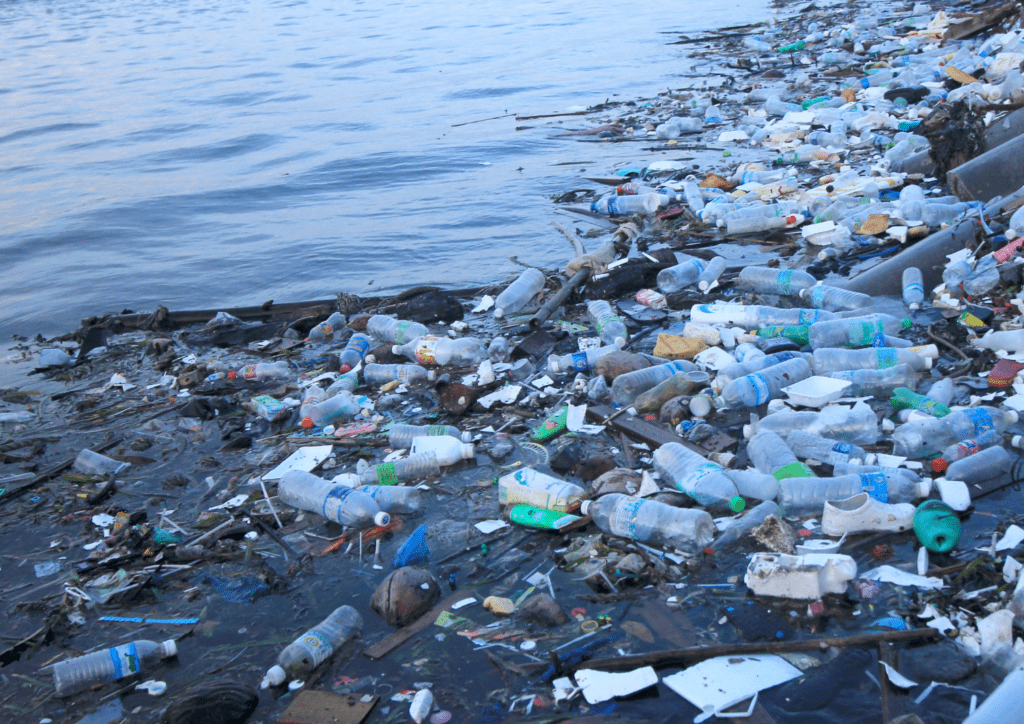ENVIRONMENTAL DEFENCE, ECOJUSTICE, OCEANA CANADA
Industry opposition to regulating plastics is out of step with science and public opinion
OTTAWA | Unceded territory of the Algonquin Anishinaabeg People – Environmental groups are jumping into the legal fray to support the federal government as it fends off an industry-led lawsuit challenging its efforts to regulate plastic pollution.
Ecojustice, acting on behalf of Oceana Canada and Environmental Defence, will make arguments defending the government’s efforts to combat the growing plastics crisis and introduce checks and balances to hold industry accountable.
Plastics are harmful pollutants that burden our economy and threaten the health of our environment including our wildlife, rivers, lakes and oceans.
In May 2021, Canada listed plastic manufactured items as toxic under the Canadian Environmental Protection Act (CEPA), consistent with previously announced plans for a ban on common harmful and unnecessary plastic items. The listing empowers the Ministers responsible to make regulations to prevent or control plastic pollution at every stage of the substance’s life cycle, from research and development to manufacturing, use, storage, transportation and final disposal or recycling.
Despite overwhelming evidence of the environmental risks posed by plastics, the industry has aggressively lobbied against any restrictions. Opposition efforts include this lawsuit, which was launched by a coalition of the country’s largest plastics manufacturers.
Bronwyn Roe, lawyer, Ecojustice said:
“It is well within the federal government’s authority to regulate plastic at all stages of its lifecycle. By listing plastic manufactured items as a toxic substance under CEPA, the government took a vital, much-needed first step toward curbing plastic pollution and ensuring the plastics industry is effectively regulated and its harm mitigated. We’re headed to court to uphold this decision.
Industry opposition to plastics regulation is out of step with science and public opinion. Big Plastic has shirked responsibility for too long – we must not allow those who profit from continued pollution to dictate Canada’s position on plastics regulation.”
Karen Wirsig, Plastics Program Manager, Environmental Defence said:
“It’s outrageous that Canada’s three biggest plastic producers, NOVA, Dow and Imperial Oil, are challenging the federal government’s ability to protect our environment, our health, and our safety. We’ll be there to provide a voice for the Canadian public, whom we know overwhelmingly support action on plastic. Regulations are our only way out of the plastic pollution crisis. That these companies would go so far as to sue the government over this proves beyond a doubt that they cannot be trusted to manage things responsibly. We’re ready to face them in court.”
Ashley Wallis, Plastic Campaigner, Oceana Canada said:
“According to the United Nations, plastic pollution is the second most ominous threat to the global environment after climate change. An environmental crisis of this magnitude requires systemic change and strong federal policy.
Plastic pollution, much like climate pollution, doesn’t recognize municipal, provincial or national borders. We won’t end the growing global plastic disaster by relying on voluntary industry-led initiatives or fragmented local bans. The federal government must use its authority to regulate plastic production, use and disposal, nationally. The CEPA listing is the first step in Canada’s efforts to curb the fatal flow of plastic into our oceans, and one we’re pleased to support in court.”
Background
Plastic pollution has rapidly become one of the world’s most pressing environmental issues, as the ever-increasing production of disposable plastic products outstrips our ability to manage it.
The plastics life cycle, from production to disposal, emits greenhouse gases and contributes significantly to global warming. In 2019, the global production and incineration of plastic released an estimated 850 million metric tonnes of greenhouse gases into the atmosphere – equivalent to the emissions from 189 five-hundred-megawatt coal power plants.
Not only is plastic one of the world’s biggest polluters, it’s also one of the longest-lasting – it takes more than 400 years for some plastics to break down. Canadians alone throw away more than 3 million tonnes of plastic waste each year, more than 90 per cent of which ends up in landfills, incinerators or the environment. Large debris and smaller microplastics pose a significant threat to terrestrial and marine ecosystems, wildlife and human health.
Plastic pollution – and efforts to clean it up – comes with a high price tag. The plastic we throw away represents about $8 billion in lost revenue every year. It is estimated that the cost of cleaning up plastic pollution in the Great Lakes area (U.S. and Canada) alone is about $468 million per year.
Ninety per cent of people across Canada support a ban on single-use plastics and two-thirds want the proposed ban expanded to include more harmful plastic products, according to a recent poll by Abacus Data commissioned by Oceana Canada.
Read the full media backgrounder
About:
ENVIRONMENTAL DEFENCE (environmentaldefence.ca): Environmental Defence is a leading Canadian advocacy organization that works with government, industry and individuals to defend clean water, a safe climate and healthy communities.
ECOJUSTICE (ecojustice.ca): Ecojustice uses the power of the law to defend nature, combat climate change, and fight for a healthy environment. Its strategic, public interest lawsuits and advocacy lead to precedent-setting court decisions and law and policy that deliver lasting solutions to Canada’s most urgent environmental problems. As Canada’s largest environmental law charity, Ecojustice operates offices in Vancouver, Calgary, Toronto, Ottawa, and Halifax.
OCEANA CANADA (oceana.ca): Oceana was established as an independent charity in 2015 and is part of the largest international advocacy group dedicated solely to ocean conservation. Oceana Canada has successfully campaigned to end the shark fin trade, make rebuilding depleted fish populations the law, improve the way fisheries are managed and protect marine habitat. We work with civil society, academics, fishers, Indigenous Peoples and the federal government to return Canada’s formerly vibrant oceans to health and abundance. By restoring Canada’s oceans, we can strengthen our communities, reap greater economic and nutritional benefits and protect our future.
– 30 –
For media inquiries, please contact:
Lauren Thomas, Communications Manager | Environmental Defence, lthomas@environmentaldefence.ca
Zoryana Cherwick, Communications Specialist | Ecojustice, zcherwick@ecojustice.ca
Tammy Thorne, Communications Manager | Oceana Canada, tthorne@oceana.ca







